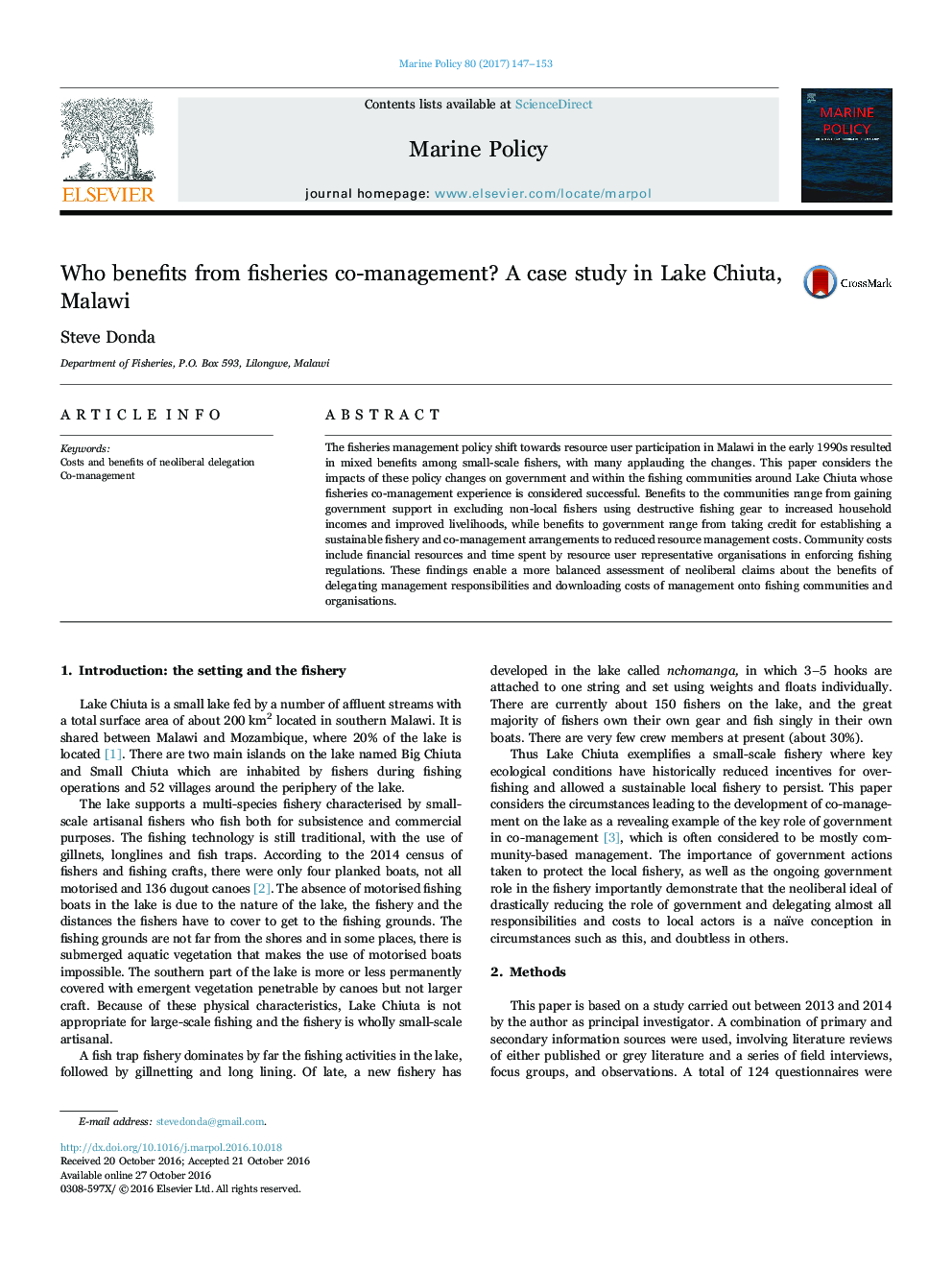| کد مقاله | کد نشریه | سال انتشار | مقاله انگلیسی | نسخه تمام متن |
|---|---|---|---|---|
| 5118110 | 1485499 | 2017 | 7 صفحه PDF | دانلود رایگان |
- The role of government is central in the successful operation of co-management.
- Neoliberalisation led to the downloading of most regulatory costs onto communities.
- Co-management arrangements can benefit government without overburdening communities.
The fisheries management policy shift towards resource user participation in Malawi in the early 1990s resulted in mixed benefits among small-scale fishers, with many applauding the changes. This paper considers the impacts of these policy changes on government and within the fishing communities around Lake Chiuta whose fisheries co-management experience is considered successful. Benefits to the communities range from gaining government support in excluding non-local fishers using destructive fishing gear to increased household incomes and improved livelihoods, while benefits to government range from taking credit for establishing a sustainable fishery and co-management arrangements to reduced resource management costs. Community costs include financial resources and time spent by resource user representative organisations in enforcing fishing regulations. These findings enable a more balanced assessment of neoliberal claims about the benefits of delegating management responsibilities and downloading costs of management onto fishing communities and organisations.
Journal: Marine Policy - Volume 80, June 2017, Pages 147-153
